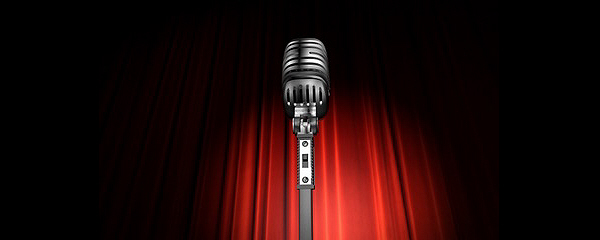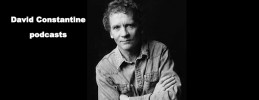
by Juliet West
Earlier this year, a contributor to THRESHOLDS recommended an online recording of Richard Yates reading his short story ‘The Best of Everything’. Yates died in 1992 – not so long ago – but he never achieved great literary fame in his lifetime and it hadn’t occurred to me that any digital archive might exist. This was something I couldn’t wait to hear.
I chose the moment carefully. The younger children were in bed, the eldest was engrossed in a re-run of Cowboy Builders. I poured a beer and sat down in the sunny porch with my laptop on my knees. It was a beautiful spring evening. On the lawn a blackbird was attacking a large slow-worm, but not even this gruesome display could distract me from my mission. Looking back, the setting was perfect. Alcohol, beauty, brutality… bring on Richard Yates.
‘The Best of Everything’ is a subtle account of a young typist, Grace, who is about to marry Ralph, a man described as a ‘ratty little clerk’ by Grace’s pretentious roommate. Although Grace defends Ralph, any excitement she may feel on the eve of her wedding is tempered by a sense of resignation and sadness. The irony implicit in the title is gradually revealed: Grace is settling for second best.
I knew the story, but to hear Richard Yates reading his own words seemed a rare privilege. What surprised me, however, was the fact that Yates’ delivery was a long way from perfect. He stumbled at times, apologised to the audience (‘Sorry, I screwed that up…’) and once or twice seemed to lose his place. But somehow this only added to the intensity of the work. The startling emotional honesty which distinguishes Yates’ writing was delivered tenfold, and when he sang a lyric from the Irving Berlin song The Easter Parade – husky and tuneful, evoking Ralph’s ‘faint, whispering tenor’ – well, it was wonderfully moving.
Today, the proliferation of live lit events, book festivals and literary prizes means that writers are under pressure to add ‘public speaker’ to their list of accomplishments. Many relish this aspect of the trade, but others find it an unwelcome, not to say terrifying, distraction. In the moments before going on stage, I suffer a heart-thumping dread and the sensation that I would gladly swap places with anyone in the room. I’d swap places with a blackbird-pecked slow-worm, if only someone would be kind enough to lay me down on a faraway lawn.
However, listening to Richard Yates gave me some comfort. I feel nervous because I’m scared of fluffing lines, of losing my place, of drying up and having to pause for a drink. Richard Yates did all these things, yet the power of his story was undiminished.
A few weeks after hearing the recording, I read a short story at a live lit event in Brighton. As I walked to the venue I tried to calm myself by remembering the lesson of Richard Yates. This helped a little, but the negative thoughts still elbowed their way in: Yates’ story was brilliant. My story isn’t brilliant. Who do I think I am?
Whatever. I got through the reading and floated back to my seat in a thank-god-that’s-over bubble of euphoria. Afterwards I pestered my husband for an honest appraisal of my performance. Did my nerves show? Was I absolutely the worst of all the writers? He thought for a moment before giving his diplomatic verdict: ‘You didn’t seem too nervous… but you were probably the least relaxed.’
I’m not suggesting that a flawed delivery is somehow preferable to a perfect reading, indeed I’m terrifically envious of the writer who is blessed with a bewitching voice and an assured stage presence. But for those of us who struggle to achieve the gold standard, take heart.
Least relaxed. Surely that’s good enough. As Richard Yates proves, who needs relaxed anyway?
*
You can find the audio link to Richard Yates reading ‘The Best of Everything’ on the Richard Yates Archive.


Thank you Pauline. I will definitely look into it. Sometimes I feel I’m part of the ‘dead writer’s society’ as I seem to gravitate towards authors’ whose writing styles I know. This is because I’m still struggling with the mechanics of the short story and I can see definite patterns in the older stories that are not found in most newer stories. On the other hand, I’m thinking, perhaps this has more to do with my personality: that I tend to feel safe with what I know versus what I don’t know. That’s a mouthful for a Friday morning…
If you enjoy listening to archive recordings by writers who are no longer with us then you might be interested in an audio book that I’m currently listening to and will be reviewing for The Short Review website. It’s called ‘Short Stories: English and Irish authors read their own work’ (http://publishing.bl.uk/cd/short-stories) and has a fascinating collection of readings that date back to 1948. One for the Christmas list perhaps?
Thanks for posting more audio archive tips, Dora. Will check those out!
So glad you enjoyed the Richard Yates’ recording. Reading your post brought back the pleasure I also experienced listening to it. It was amazing. This was the first time I had ever heard of him and this allowed me to sample some of his work. I loved “The Best of Everything.” What makes the story universal is that everyone can relate to it, even today. We are still looking for the ‘best of everything’ even though we have so much more than the generations before us. It’s a shame his work wasn’t lauded while he was alive.
I also give you a lot of credit for reading your story in front of an audience. I’m glad that Richard Yates, decided to give the reading despite his misgivings, and I’m sure that your listeners felt the same way. I tremble just thinking about it. I hope it doesn’t take me another 30 years before I can do so! Seriously though, you are correct, today a writer must be prepared to do all she/he can to compete for everyone’s attention. We just have to repeat – it’s okay to stumble – we are human – at least we get to hang on to our books.
BTW, I found more stories and videos on the BBC Archives’ website (http://www.bbc.co.uk/archive/). I was thrilled to see an interview with Daphne Du Maurier. As I mentioned before, ‘Rebecca’ was the second English book I read (after Jayne Eyre) and seeing her give her interview was so magical.